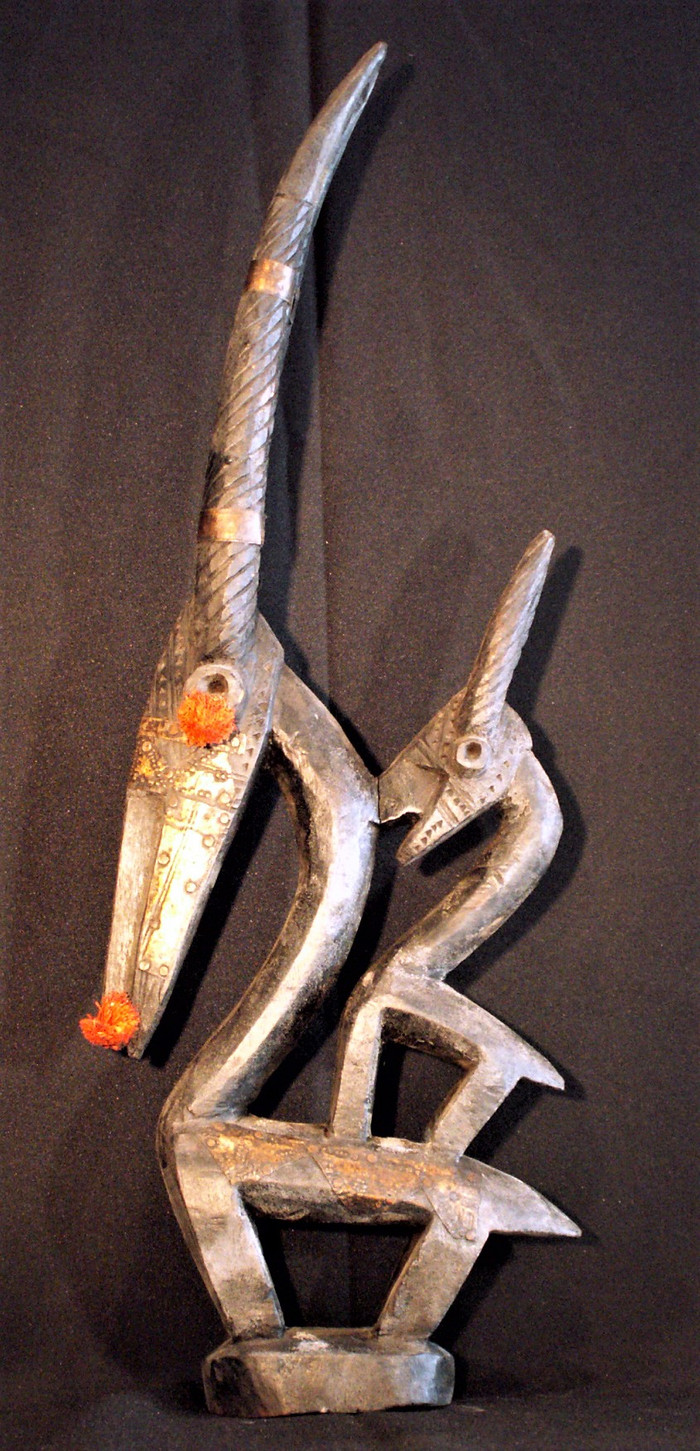Malian Bamana People Crest Mask - "Tji Wara" Female Antelope Harvest Mask
Collection: Spiritual Connections
This Malian mask is worn as part of a headdress for a young man's initiation into the Tji Wara Society of the Bamana People. The initiation ritual teaches social values and agricultural techniques.
The Bamana people, sometimes called Bambara, are one of the largest ethnic groups in Mali. Their traditional life revolves around agriculture; knowledge of agriculture practices is transmitted from generation to generation through the Tji Wara society. They have six major secret societies of different levels of prestige that conduct adult initiation rituals. Initiates are taught survival skills, social customs, and religious principles.
The Tji Wara Society dances use crest masks only. The mask itself is called "Tji Wara" and is worn on top of the dancer's head. The Tji Wara typically takes the form of a roan antelope crossed with a human. The Tji Wara is danced in male and female pairs, with each wearing a full suit of raffia fiber and the crest mounted on a basket that sits atop the dancer’s head. The male dancer leads, leaping like an antelope and scratching the ground with a staff to illustrate the teaching of agriculture. The female follows behind and fans the male to spread his powers to the village. The Tji Wara masqueraders encourage cooperation among the villagers to bring in a good crop, and honor the best farmer in the village.
This specific mask depicts a female antelope, carrying a young animal on her back.
Source:
http://www.randafricanart.com/Bamana_vertical_Tji-wara_pair.html
"A History of Art in Africa"
https://bambara-noaam.org/culture/ee_viii58.htm
